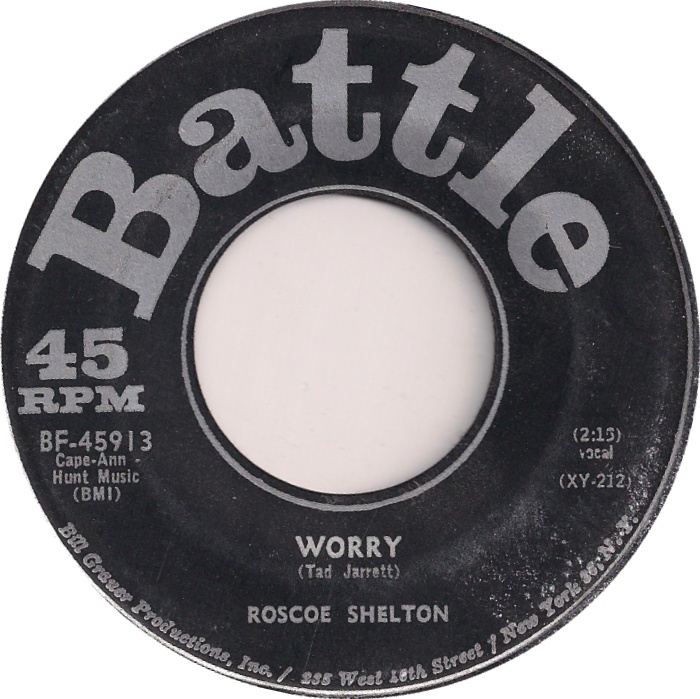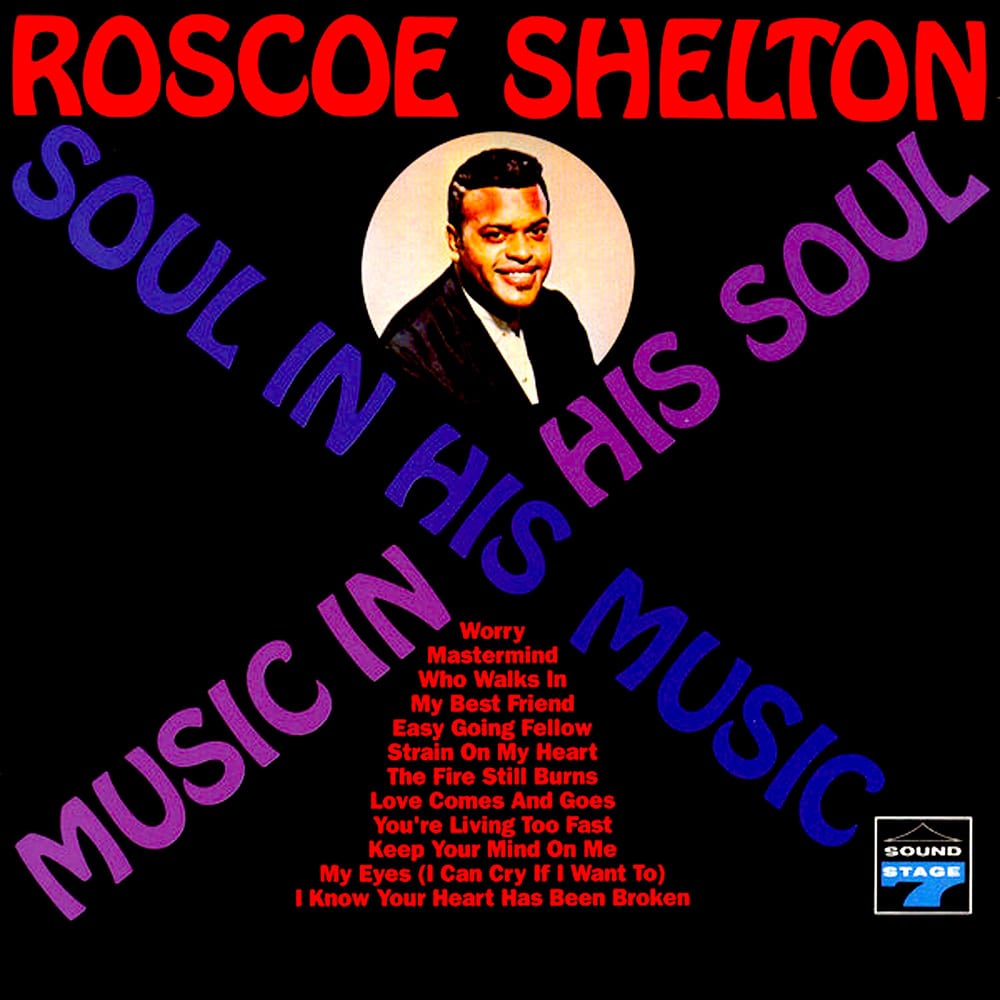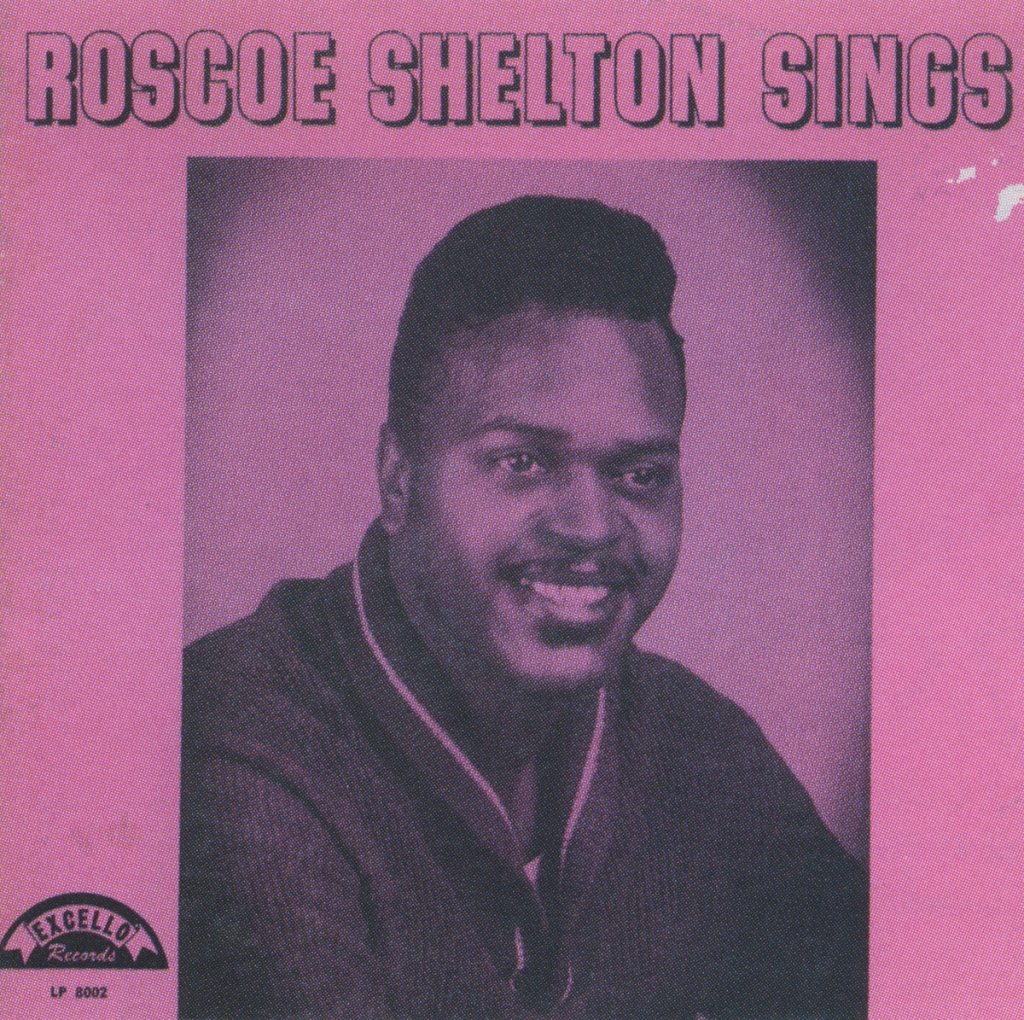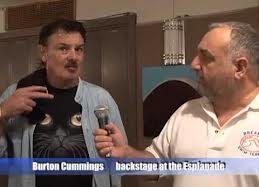
Roscoe Shelton Biography Artist Biography by Joe ViglioneRoscoe Shelton is a pivotal and influential voice who paved the way for other soul artists as the blues and rock genres were finding some common ground in the world of pop music. His latter-day producer, Fred James, noted that Roscoe was one of the few blues/R&B singers of the ’50s to make the transition to soul.
Eighteen years after his birth on August 22, 1931, in Lynchburg, TN, Roscoe joined the legendary Fairfield Four, a gospel quartet from the ’30s and ’40s. It is important to note here that Shelton’s friend Bobby Hebb also played guitar in the Fairfield Four, though not while Shelton was with the act. After singing lead for that group Roscoe spent four years in the military. Upon his release from military duty he joined a spinoff of the Fairfield Four, which became known as the Skylarks. Between 1956 and 1957 the Skylarks recorded for Nashboro Records, a gospel label owned by Excello Records proprietor Ernie Young. After his gig with the Skylarks, Shelton performed live with his childhood friends DeFord Bailey, Jr. and Bobby Hebb. Hebb noted that Shelton sang spirituals before he went into the blues.
It was never a problem for the singer and guitarist to get together. They would see each other in the neighborhood quite often. And it was the same with DeFord Bailey, Jr., son of the legend he was named after, who lived only two or three houses away from the Hebbs when Bobby and DeFord were children. Bobby Hebb was a sideman with DeFord Bailey, Jr. — considered the first electric bass player in Tennessee — and they had a variety of singers including Roscoe Shelton. Roland Grisham would perform on guitar when Hebb had other commitments. They traveled regionally — a variety of places including Clarksville, Fedville, and Tullahoma, TN, where Hebb’s father was from.
Roscoe Shelton SingsAccording to writer Bill Dahl in the CD liner notes to Roscoe Shelton Sings, Roscoe recorded at Excello Records between October of 1958 to February 1961, the material showing up on his album debut, 1961’s Roscoe Shelton Sings. Bobby Hebb played guitar on some of the original Excello sides, including a minor hit, “Something’s Wrong,” written by Shelton/Hall. Roscoe would cover only one composition from his friend and neighbor, the song-a-day man Bobby Hebb. That tune from circa 1959/1960 is entitled “My Best Friend,” with lyrics slightly altered from Hebb’s original. Forty-fives were being released on various labels after the debut album, Roscoe recording for Ted Jarrett’s Valdot label in 1962, those sides getting licensed to Battle Records. In 1964-1965 the work was issued on the Simms imprint, resulting in the hit “Strain on My Heart.” Simms was absorbed by Sound Stage Seven, a label operated by former DJ John Richbourg, aka John R of Rich Records fame. Sound Stage Seven released the singer’s music between 1965 and 1967, hitting with “Easy Going Fellow.” The SS7 material featured songwriting and production from Allen Orange, delivering the aforementioned hit “Strain on My Heart,” which went into the Top 25 on the R&B charts of Billboard magazine, followed by another hit, “Easy Going Fellow.” “Sea Cruise” author Huey “Piano” Smith contributed a couple of tunes as well, recordings that were issued along with over a half-dozen singles at one point in time, collected on the 1966 album Soul in His Music, Music in His Soul. And consider that was a five-year delay between long-players for the gifted singer — too long a span of time for someone who contributed so much to the changing times. Ten years older than Otis Redding and the fellow born six months before Otis, Wilson Pickett, there’s no doubt that Shelton’s pioneering work impacted the styles of both legends. Redding and Shelton eventually performed at the Apollo Theater on the same bill. Just listen to the Wilson Pickett growls and the Otis Redding inflections to see where they got some of their classic vocal moves.Though music was made for Ted Jarrett’s Ref-O-Ree imprint between 1958 and 1969 along with one 45 for Jarrett’s T-Jaye label in the ’70s and another in the ’80s, Shelton left the music business for the private sector in 1970, becoming the dorm administrator for Meharry Medical College in Nashville. The gap is huge between the work on Sound Stage 7 in 1966 and the 1994 release of material by Shelton, Earl Gaines, and Clifford Curry under the title of the Excello Legends. This was actually recorded for what was to be a reactivated Excello Records, but the company sold out to AVI, the disc getting licensed to Magnum and finding re-release in 1998 on Ripete.
Let It ShineFred James produced many of Shelton’s recordings in the ’90s and the new millennium, touring the U.S. and Europe with the singer several times. Those records include Let It Shine and She’s the One from 1996, and the Earl Gaines and Roscoe Shelton 1998 recordings entitled Let’s Work Together. A 1996 duet with Mary-Ann Brandon (wife of producer Fred James) found release on Road Records’ Matches from Motel Rendezvous album in 2003. Several more CDs were released up to the singer’s passing in July of 2002. In 2004 the Grammy-winning Night Train to Nashville collection included “Say You Really Care” from Rosco Shelton Sings, bringing this singer’s work additional appreciation and a new audience. https://www.allmusic.com/artist/roscoe-shelton-mn0000342226/biography
https://www.allmusic.com/artist/roscoe-shelton-mn0000342226/biography

Soul in His Music, Music in His Soul features sublime vocalist Roscoe Shelton interpreting a dozen tracks by songwriters Huey “Piano” Smith, Allen Julian Orange, Bobby Hebb, and others. Recorded by DJ/producer John Richbourg aka “John R” of Rich Records and Cape Ann Music publishing, the material eventually emerged on the Sound Stage 7 label as this collection. A total of 11 of these 12 titles were released over seven separate 45 rpm records – that’s almost the entire album issued as singles to radio and the public years before Cyndi Lauper, Tina Turner, Heart, and Fleetwood Mac would make multiple releases from an LP the norm. When Shelton left Excello Records circa 1961, he released a song written by his guitarist from the early Excello sessions, Bobby Hebb, coincidentally on Battle Records, the same label Hebb released a 45 on. Battle #45913 had Ted Jarrett‘s “Worry” on the B-side with “My Best Friend” as the featured track. Written by Bobby Hebb in 1959 or 1960, Shelton changed the lyrics slightly in the middle-eight, making this unique from the songwriter’s original version. The double-sided single “Love Comes and Goes” b/w “Mastermind” was released on John R‘s Sims imprint, Sims 190 to be exact, written by Huey “Piano” Smith of “Sea Cruise” and “Rocking Pneumonia and the Boogie Woogie Flu” fame. “Strain on My Heart” was issued as Sims #217 and became an R&B hit in 1965. “Keep Your Mind on Me” came out as Sims #240, while “The Fire Still Burns” was issued on Sims 245. Amazingly, the singles kept finding release with “I Know Your Heart Has Been Broken” on Sound Plus #2122 while another R&B hit, “Easy Going Fellow, found fame in 1966 on Sound Stage #2555. “Who Walks In (When I Walk Out)” b/w “You’re Living Too Fast” got issued on Sound Plus #2114/ Sound Stage 7 #2563 — staggering when one thinks of the outreach to radio this important artist received. From the strings of “You’re Living Too Fast” to the R&B groove of “Who Walks In (When I Walk Out)” the seven compositions from the pen of Allen Orange most likely had his guiding presence to help them along in the recording studio. Though all the tracks here got scattered across the Deep in My Soul CD collection about 40 years after this initial release; the tracking on Soul in His Music, Music in His Soul works wonderfully and is worth a listen if just for the superb original context.
Roscoe Shelton Sings

Roscoe Shelton Sings! AllMusic Review by Joe Viglione [-]In 1995, AVI/Atomic Beat expanded Roscoe Shelton Sings to 25 tracks, reissuing the music on the logo where it was originally found, the majestic Excello Records imprint. Bill Dahl does an excellent job in his five pages of liner notes, chronicling the material Shelton recorded for Excello during the three-year period from the first session, October 3, 1958, up to the last Excello date Shelton taped for the label on February 2, 1961. In those 28 months something very special was captured, and the reissue wisely keeps the tracking in its original order before adding the bonus tracks. Dahl mentions that Shelton was “reasonably sure” that “Sunny” author Bobby Hebb performed on the first sessions. The musicians were neighbors and it is indeed the lead guitarist who appeared on the Dave “Baby” Cortez Top Ten hit “Rinky Dink” in 1962 who plays on the exquisite “Something’s Wrong,” a minor hit for Shelton. With regard to “Crazy Over You,” “Why Didn’t You Tell Me,” and other tracks, Hebb said, “It sounds like something I might have done at that time. I was playing that particular style — within four frets’ reach.” Shelton’s grasp of mood and nuance is tremendous, the band setting the table perfectly on “Think It Over,” giving Roscoe a perpetual groove to ride. He provides different shades of pain on “A Fool Wrapped Up in Love,” the song titles posing questions or making statements on the various romantic states the singer explores with his dynamic and underexposed voice. The packaging is tremendous, complementing these sounds from the succinct but important initial phase of Shelton’s equally small but vital catalog. You can feel bits of Nat King Cole as well as Sam Cooke on “Are You Sure” and Jackie Wilson’s dancehall verve on “Lonely Heartaches,” but these are merely flavors as Roscoe Shelton delivers his own unique impressions on these early and essential sides. https://www.allmusic.com/album/roscoe-shelton-sings-mw0000005553
https://www.allmusic.com/album/soul-in-his-music-music-in-his-soul-mw0001442922
